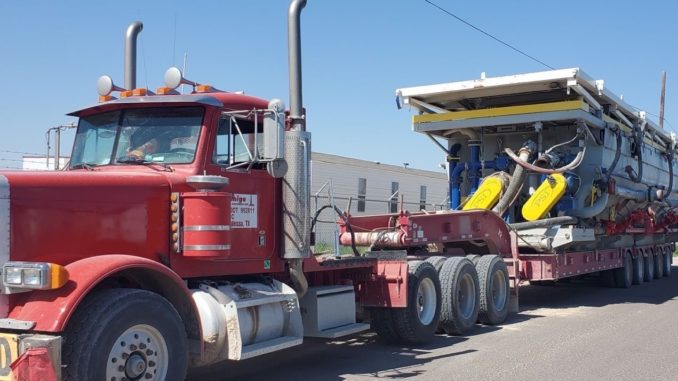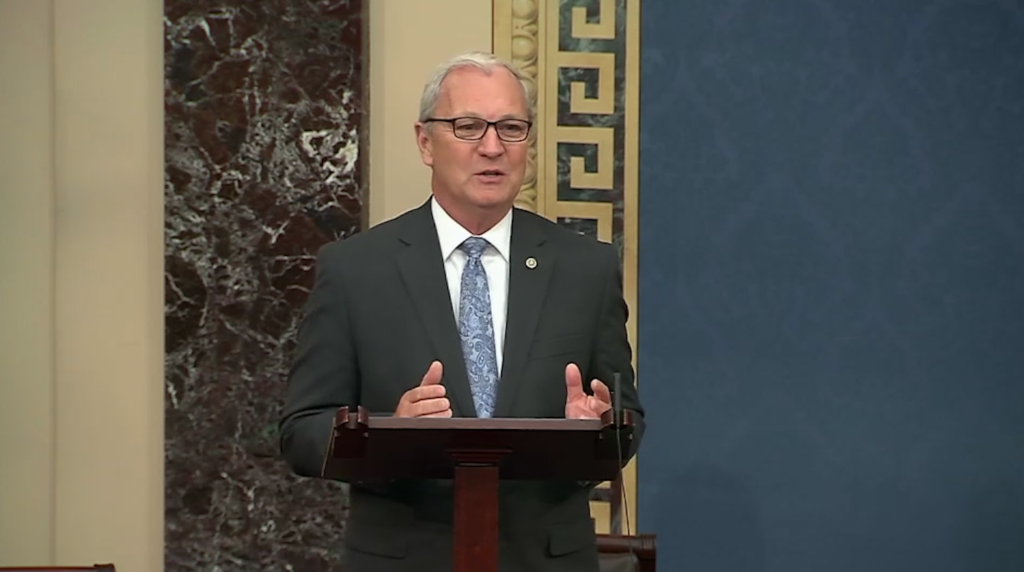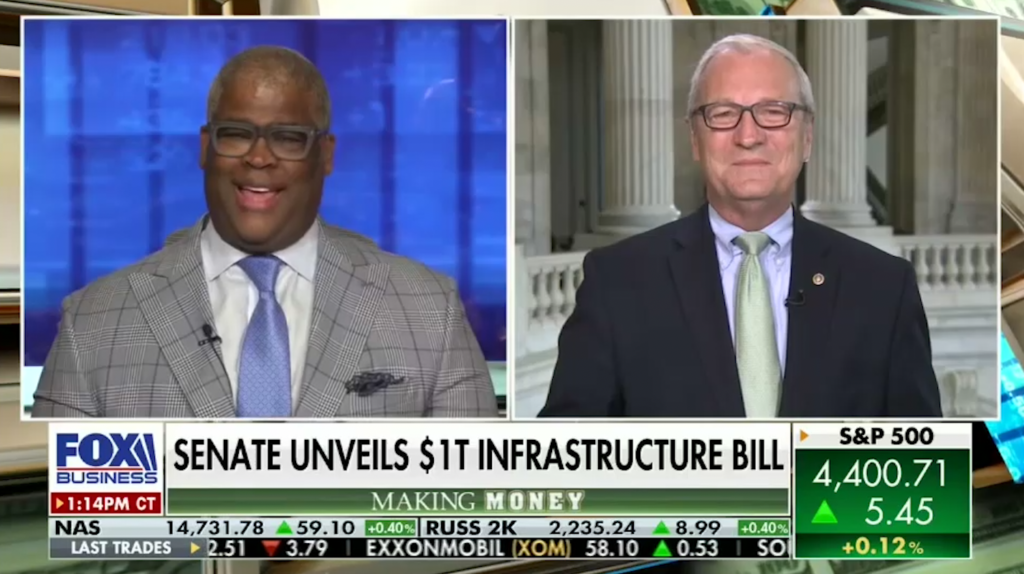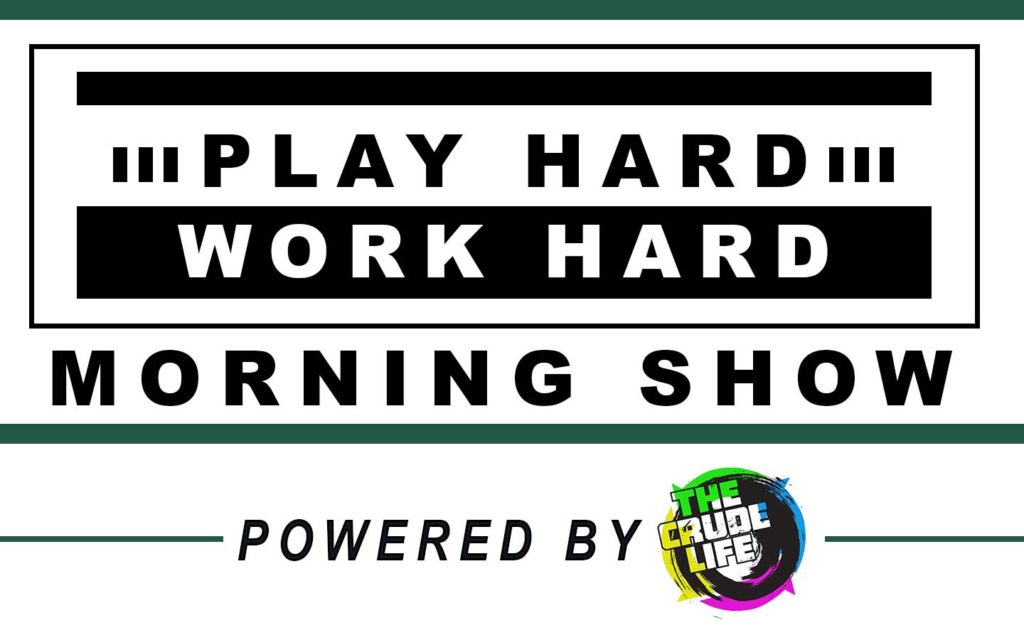

Play Hard Work Hard Morning Show powered by The Crude Life Episode 128
Hour One Play Hard: Jason Spiess and Sterling talk Reverse Engineering Economy, Vanilla Ice Xerox, Modern Day Bootstrapping, Line 3, R. Kelly, Big Oil Big Profits, California’s Green Economy and Saturday Morning Science.
Hour Two Work Hard: U.S. Senator Kevin Cramer
The Crude Life Daily Update For the Radio On The Podcast: Energy Expert Mark Stansberry
source: tradingeconomics.com

HOUR ONE PLAY HARD: Jason Spiess and Sterling discuss the recent history of the Reverse Engineering Economy and give a Planet Service Announcement that the reverse engineers are in full force right now.
Jason cites Vanilla Ice’s reverse engineering Queen’s hit “Under Pressure” and how Xerox actually invented the computer we use today. The graphic user interface and the mouse were inventions of Xerox, but the leadership at the time could not see the potential of the personal computer or graphics and passed.
Then the leadership gave Apple and Microsoft access to the mouse and the both reverse engineered the graphic interface to their customization. Jason mentions how many of the networking events and Zoom “pick your brain calls” are filled with reverse engineers right now.
Sterling recalls a bit of his corporate experience and the advice he was once given to just say no to all new ideas. The safe thing is to say no and not have any change. Jason points out those are the people being asked for change right now and are not used to the responsibility and are in a calm panic mode as layoffs and expiring PPP monies become more real in the marketplace and home.
Sterling also talks about how companies like DARPA used to create new technologies and hand them over the marketplace to create a “pull yourself up by the bootstrap” marketplace. Now however, in the new marketplace, there seems to be a new group of subsidized businesses who do not have to hand over their innovations or intellectual property to the marketplace. They get to keep the tax payers money and their results too.
Jason parallels California’s economy to where the world is taken our species and society. In 1992 California passed laws requiring 2% of vehicles become EV and 10% by 1998. Not only did the subsidized and regulated marketplace not happen, but hybrid markets were showing signs of acceptance by the people.
The conversation continues as they describe the Small Business Squeeze that is happening either by design or accident, either way it is happening and the government is spearheading the results.
The two also talk about how corporation use Analytics in Employment, supply chain issues, the Greater Good, how leadership is investing in the system over people and football is back.
In fact, there is a college or pro football game on every week now until the SuperBowl.
In the News, Rumors and Newsspeak the two discuss Line 3, Big Profits for Big Oil and R. Kelly’s recent sex-capade.

In HOUR TWO we WORK HARD with our Newsmaker Interview: U.S. Senator Kevin Cramer
Senator Cramer first delivers remarks on the Senate Floor, then is interviews by Charlies Payne on Fox Business.
U.S. Senator Kevin Cramer (R-ND), the Ranking Member of the Senate Environment and Public Works (EPW) Subcommittee on Transportation and Infrastructure, delivered remarks on the Senate floor today on the bipartisan infrastructure package being considered on in the Senate, called the Infrastructure Investment and Jobs Act.
“Infrastructure has been a priority for Congress because it is a priority for our constituents. America cannot succeed without a robust infrastructure from one coast to the other, and all the places like North Dakota in between,” said Senator Cramer. “The United States needs rural America, and rural America needs infrastructure. The personal needs it fulfills and the economic benefits it delivers are obvious. Rather than investing trillions of taxpayer dollars on government handouts for people to not work, we can spend money on putting people to work revitalizing a system that directly benefits all of us, and that’s what the plan before us would help accomplish.
The senator warned about the consequences of inaction on infrastructure.
“The inability to meet in the middle is not an excuse for inaction, especially when it comes to addressing not just the pressing needs of the American people here at home, but also protecting our standing as a country on the world stage,” said Senator Cramer. “We understand how important infrastructure is, but so does China. So does Russia. So do all of our adversaries who would like to see us continue to fall behind.”
Senator Cramer concluded by urging his colleagues to consider the benefits for the country of a significant investment in infrastructure and urged them to oppose any “poison pill” amendments or derailing the process.
“The Infrastructure Investment and Jobs Act would be a significant win for our country. I know it would be for my state,” said Senator Cramer. “I urge my colleagues to keep the negative parts of the bill in perspective and to appreciate the opportunity we have to make a difference for our constituents. North Dakota needs safe and sufficient infrastructure, America needs safe and sufficient infrastructure, and the world needs the United States to have safe and sufficient infrastructure.
The senator’s speech also covered his priorities within the bill, the benefits the bill would deliver for North Dakota, the importance of bipartisanship, and his opposition to the $3.5 trillion spending package Senate Democrats plan to bring to the floor once the Senate finishes with the bipartisan infrastructure bill. Senator Cramer’s remarks as delivered are as follows:
“I want to start out by thanking Senators [Rob] Portman and [Kyrsten] Sinema for providing such incredible leadership and to the group of bipartisan senators that negotiated and coordinated this incredible effort.
“I also want to thank Senator [Shelley Moore] Capito who is managing this floor process along with EPW Chairman Tom Carper. The progress they have made on this issue with the Administration earlier this year, paired with the excellent leadership they that they’ve provided committee, really exemplifies what is possible when we work together, and it has allowed us to get to this point.
“Madam President, reviving America’s roads and bridges is a longstanding national priority Congress has taken too long to address. We need reliable, accessible infrastructure to operate locally and compete globally, and as it currently stands, the bill before us is well-suited to meet that exact need.
“The Infrastructure Investment and Jobs Act isn’t perfect, no bill ever is, but it makes historic investments in assets that will benefit every American for many, many years. I applaud the group for using the surface transportation bill we unanimously passed out of the Environment and Public Committee as the foundation for this bill.
“As the lead Republican on the Transportation and Infrastructure subcommittee, I know how much time and effort members from both sides of the aisle have put into the surface transportation reauthorization. The end result reflected the good work we accomplished and it was the perfect building block for the package that is before us.
“Madam President, as you know, I was not an original part of the bipartisan group. However, when I was approached for my input, I made my top priorities clear:
- Keeping the permitting reforms in our bill. Permitting reforms like the One [Federal] Decision that was a rule that President Trump put into place that President Biden removed his first day in office. It’s codified in this bill for surface transportation.
- Prioritizing dedicated funding to states and to their departments of transportation as part of the traditional formula for distribution.
- Limiting the expansion of urban transit programs.
- Including the bipartisan bill that Senator Lujan and I introduced to clean up orphaned and abandoned oil wells.
“I am glad to see these provisions, as well as our committee’s Drinking [Water] and Wastewater Infrastructure act, in the bill. I also appreciate the use of unspent COVID-19 relief funds to help pay for these priorities. Rather being used to pay people to not work and adding fuel to the fires of inflation, this does just the opposite. I thank my colleagues for asking for my opinion, and I’m even more grateful that they listened and included these provisions in the final product.
“Infrastructure has been a priority for Congress because it is a priority for our constituents. America cannot succeed without a robust infrastructure from one coast to the other, and all the places like North Dakota in between.
“We need roads and bridges to go from farm to town, and from town to city, from city to city, state to state. We use ports and waterways and railroads to move the products that we produce to places they could otherwise never get to. We use rail and air to connect with family and friends and other business associates around the world, and we use broadband connectivity to facilitate transactions both personal and business.
“Infrastructure is foundational to our way of life, and it’s the constitutional responsibility of the federal government to facilitate interstate commerce, including the movement of goods and services along our highways and byways and waterways and railways.
“Rural states like North Dakota, know this better than most. In fact, Rugby, North Dakota, is literally the geographic center of the North American continent. We are landlocked, and we rely on our transportation infrastructure to get where we need to go, and more importantly, to move the products that we produce to where they need to get.
“For example, North Dakota is the top producer of durum wheat, which gets ground into semolina flour, which becomes the main ingredient in pasta. The wheat goes from the field to a grain elevator by a farm road to a mill by rail and to a processing plant by both, and then it goes anywhere, from a grocery store in California, to a restaurant in New York, or perhaps overseas to a market faraway. And, just like every other commodity we produce, it requires a reliable infrastructure system that is safe and sufficient for every single mile on the journey.
“The United States needs rural America, and rural America needs infrastructure. The personal needs it fulfills and the economic benefits it delivers are obvious.
“Rather than investing trillions of taxpayer dollars on government handouts for people to not work, we can spend money on putting people to work revitalizing a system that directly benefits all of us, and that’s what the plan before us would help accomplish. It is not perfect, no bill is as I said, and there are parts of it that I don’t support, but there are parts I know some of my colleagues do not support even though they are top priorities for me.
“The Founding Fathers intended for Congress to collaborate and find common ground. Those are functions of our system. They are not a side effect. It is easy to imagine if every Founder had demanded to get everything they wanted and then nothing else, well then we would have had a king, and we may not have had the system of cooperative federalism that we do today. And, if enough of them believed that doing nothing is better than getting 80 or 90 percent of what they wanted, then our More Perfect Union would never have gotten started and had a chance to become that.
“The inability to meet in the middle is not an excuse for inaction, especially when it comes to addressing not just the pressing needs of the American people here at home, but also protecting our standing as a country on the world stage.
“We understand how important infrastructure is, but so does China. So does Russia. So do all of our adversaries who would like to see us continue to fall behind. The Chinese Communist Party would be glad to see America’s roads and bridges crumble. They would be happy to let infrastructure get in the way of American production and allow for them to meet the needs of the global economy in our absence. The bill that we have before us gives us an opportunity to help stop that from happening.
“Now, while I am all for working across the aisle, that does not mean I will support bills I fundamentally disagree with, like the $3.5+ trillion spending bill that Senate Democrats plan to cobble together after we finish the bipartisan infrastructure bill. I oppose the Democrats’ reckless tax-and-spend agenda, and I will join each of my Republican colleagues in opposing it and offering amendments to change its harmful outcomes.
“That bill is completely separate from the bipartisan infrastructure bill before us today. They are not tied together, despite whatever rhetoric there may be otherwise. Both should be considered on their own merits separately.
“What a shame it would be for Democrats to offer the American public a glimpse of bipartisan cooperation only to do an about-face and hold it hostage while they jam through a massive tax increase and growth of the federal government, adding to inflation. I hope my colleagues will choose to build on our bipartisan success and resist the urge to follow the partisan whims of their political base.
“As it stands, Madam President, the Infrastructure Investment and Jobs Act would be a significant win for our country. I know it would be for my state. So far, we have avoided adding any poison pills or derailing the process, and I urge my colleagues to keep it that way.
“North Dakota needs safe and sufficient infrastructure, America needs safe and sufficient infrastructure, and the world needs the United States to have safe and sufficient infrastructure.
“I urge my colleagues to keep the negative parts of the bill in perspective and to appreciate the opportunity we have to make a difference for our constituents.

U.S. Senator Kevin Cramer (R-ND), a Senate Budget Committee member and Ranking Member of the Senate Environment and Public Works (EPW) Subcommittee on Transportation and Infrastructure, joined Charles Payne on Fox Business this afternoon to discuss the bipartisan infrastructure package, Democrats’ tax-and-spend agenda, and the debt ceiling. Excerpts and the full video are below.
On Next Steps for Infrastructure:
“We’re going through it line by line at this point. … We’ll look for things like on the permitting reform side, making sure that things like the One Federal Decision provisions that we put in the EPW bill are still in there, making sure categorical exclusions for permitting, that the permitting council is a major part of it. … There are just a lot of those nuanced things we’re looking closely at.”
On Democrats’ Spending Package:
“Whether we pass this one [infrastructure] or don’t pass this one, they will muscle the [spending bill] through. The difference being, if we pass a trillion dollar package that actually has spending constraints, that actually has infrastructure as its focus the profitability of the private sector, I think you have taken a lot of the low-hanging fruit out of a human infrastructure bill. I think it makes it more difficult frankly for them to pass it.”
On the Debt Ceiling:
“I don’t know a single Republican who would be supportive of a clean raising of the debt ceiling. … We have to have a serious discussion about the debt and deficit on both sides of the ledger, both discretionary and mandatory side of the ledger. A lot of us are prepared to do that. I’m on the TRUST Act with [Senator] Mitt Romney, which gets to the foundation, I think, of the mandatory spending side. That is an unpopular side politically to talk about, but as you know, these trust funds are coming up on insolvency — not a long ways, but within a decade.”


The Crude Life Daily Update For the Radio on the Podcast:
Mark Stansberry opines that industry needs to engage now before it gets to a point of too far gone.
About The Crude Life
The Crude Life produces original content that focuses on industry, the people, energy innovations, community building and it’s proactive culture. Our custom content is non-polarizing, trusted and often news making.
The Crude Life promotes a culture of inclusion and respect through interviews, content creation, live events and partnerships that educate, enrich, and empower people to create a positive social environment for all, regardless of age, race, religion, sexual orientation, or physical or intellectual ability.
Part of our mission is to enable people, companies and communities to affect change, demonstrate their transformative actions and drive energy awareness through storytelling and access to resources.

For sponsorship information on The Crude Life Morning Show Play Hard Work Hard, email studio@thecrudelife.com or click here.
Sponsors, Music and Other Show Notes

Studio Sponsor: The Industrial Forest
The Industrial Forest is a network of environmentally minded and socially conscious businesses that are using industrial innovations to build a network of sustainable forests across the United States.

Weekly Sponsor: Witting Parters
Witting Partners delivers a full range of energy-focused leadership
development services to help companies overcome the unique challenges of
today’s oil & gas industry so that they can successfully regain and
sustain peak performance.
From one-on-one executive coaching to
group training programs to powerful speaking engagements, everything
Witting Partners offers reflects an unmatched blend of industry insight,
technical know-how, and relevant experience that has produced
consistent results from the Gulf of Mexico to Appalachia, from service
company to operator, and from drilling rig to downtown boardroom.

Weekly Sponsor: MineralTracker
MineralTracker is the only mineral management software that allows mineral owners to compare actual royalty payments to expected payments based on well performance and a proprietary, Bakken-specific reservoir model built by MineralTracker’s petroleum engineers.
MineralTracker was formed in Watford City, North Dakota, and is a subsidiary of First International Bank & Trust, a family-owned bank also based in Watford City.

Phone Line Sponsor: Swan Energy, Inc. 866.539.0860

Studio Email and Inbox Sponsor: To Be Announced

Featured Music: Moody River Band
For guest, band or show topic requests, email studio@thecrudelife.com
Spread the word. Support the industry. Share the energy.
If you have a chance, check out The Crude Life Podcast!

